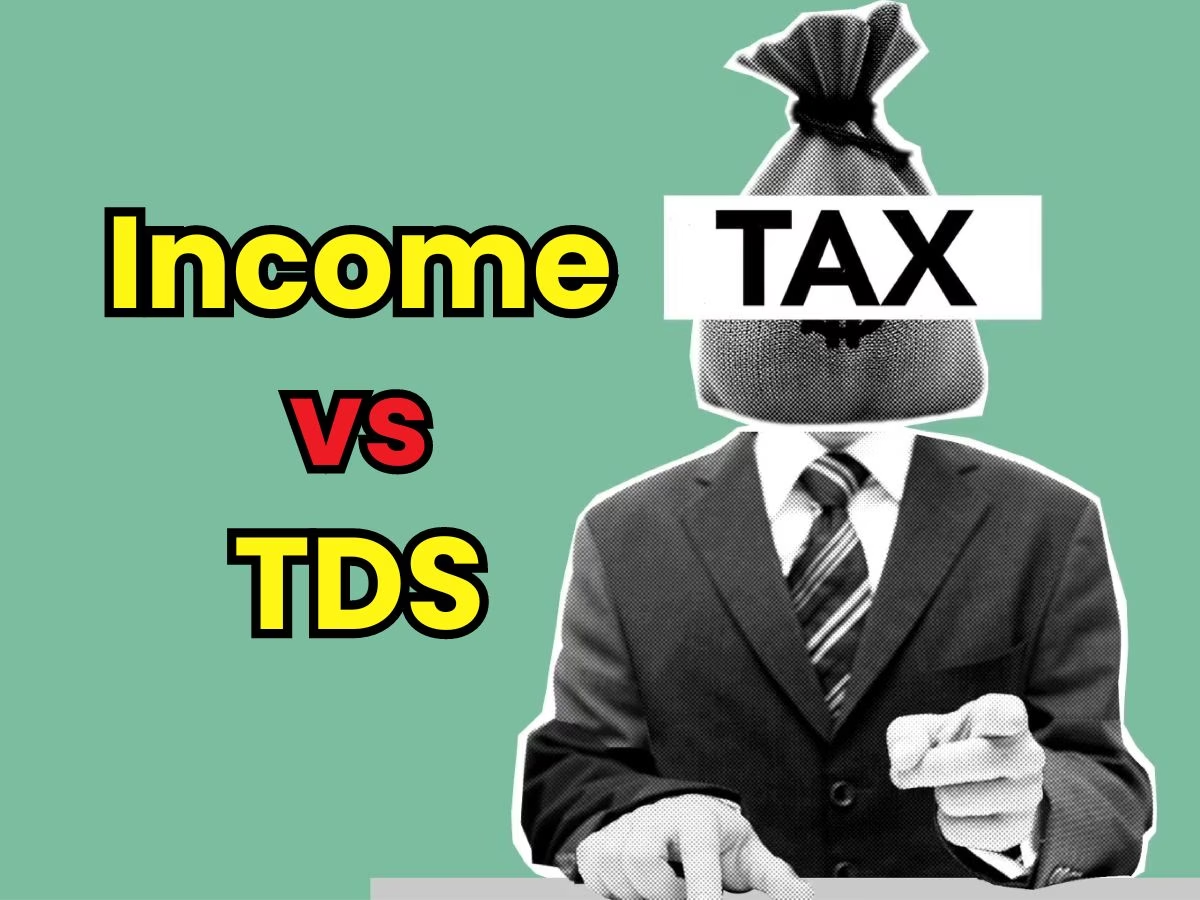Income Tax VS TDS: Are you also confused about Income Tax and TDS (Tax Deducted at Source)? There is a difference between these two terms. The tax levied on the annual income of a person or organization in a financial year is called income tax. A person’s sources of income can be different. It includes everything from salary to rent received on property.
Income Tax VS TDS: Are you also confused about Income Tax and TDS (Tax Deducted at Source). There is a difference between these two terms. In this article, we are trying to explain the difference between these two terms-
What is Income Tax
The tax levied on the annual income of a person or organization in a financial year is called income tax. A person’s sources of income can be different. It includes everything from salary to rent received on property.
Who has to pay income tax
If the annual income of any person or organization is more than Rs 2.5 lakh in a financial year, then he will have to pay tax. Please note, this income limit for paying tax is according to the old tax system.
At the same time, according to the new tax system, if the annual income of any person or organization in a financial year is more than Rs 3 lakh, then he will have to pay tax.
Talking about the old tax system, this income limit for a person between the age of 60 and 80 years is Rs 3 lakh. Whereas for senior citizens above the age of 80 years, this income limit has been fixed at Rs 5 lakh.
What is TDS
TDS i.e. tax deduction at source works to prevent tax evasion. Before paying salary, interest, rent or professional fees to any person or organization, a fixed amount is deducted as tax.
This amount is sent to the government immediately. TDS makes it easier to collect tax. Not only this, it proves useful in preventing tax evasion.
Also Read-


